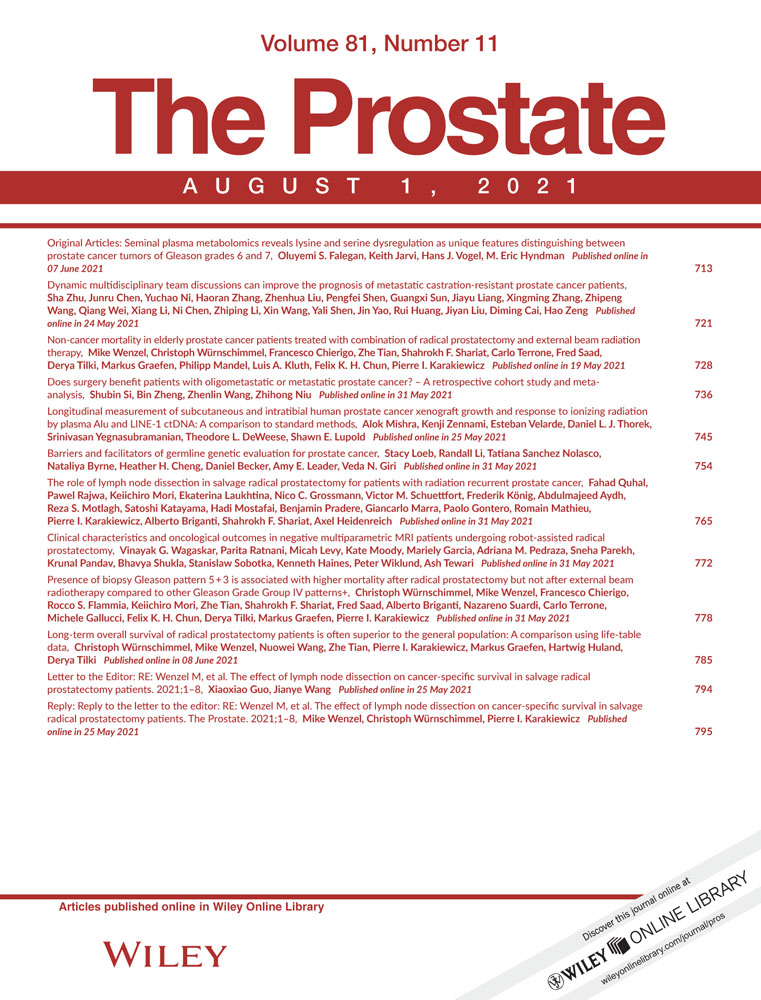Does surgery benefit patients with oligometastatic or metastatic prostate cancer? – A retrospective cohort study and meta-analysis
Shubin Si and Bin Zheng contributed equally to this study.
Abstract
Background
To evaluate long-term oncological outcomes of radical prostatectomy (RP) plus androgen deprivation therapy (ADT) in oligometastatic prostate cancer (PCa) patients.
Methods
Our study included oligometastatic PCa patients hospitalized between January 1, 2010 and December 31, 2015, who received ADT with or without RP. We evaluated survival by employing Kaplan–Meier methods, with log-rank tests and univariate and multivariate Cox regression analyses. A meta-analysis of previously published studies was additionally performed.
Results
The median follow-up times of both groups were 68.4 months (interquartile range = 56.5–85.0). In this cohort study, significant statistical difference in preoperative total prostate-specific antigen (tPSA; p = .121), clinical T stage (p = .115), and N stage (p = .394) were not found between the two groups. Meanwhile, the difference in overall survival (OS) between the two groups did not reach statistical significance (p = .649). A significant difference was not observed in castration-resistant prostate cancer (CRPC)-free survival between two groups as well (p = .183). Numbers of metastases might be an independent prognosis factor (p = .05) for OS, and postoperative tPSA is a risk predictor for CRPC-free survival (p = .032). A meta-analysis of four relevant studies demonstrated significant statistical difference in clinical improvement with RP plus ADT over ADT alone in OS survival (p < .001; hazard ratio [HR] = 0.51; 95% confidence interval [CI] = 0.38–0.69) instead of CRPC-free survival (p = .42; HR = 0.86; 95% CI = 0.59–1.24).
Conclusion
The addition of RP to ADT for the treatment of oligometastatic PCa was associated with an improved OS instead of CRPC-free survival.
Open Research
DATA AVAILABILITY STATEMENT
The data sets analyzed during the current study are available from the corresponding author's reasonable request.




